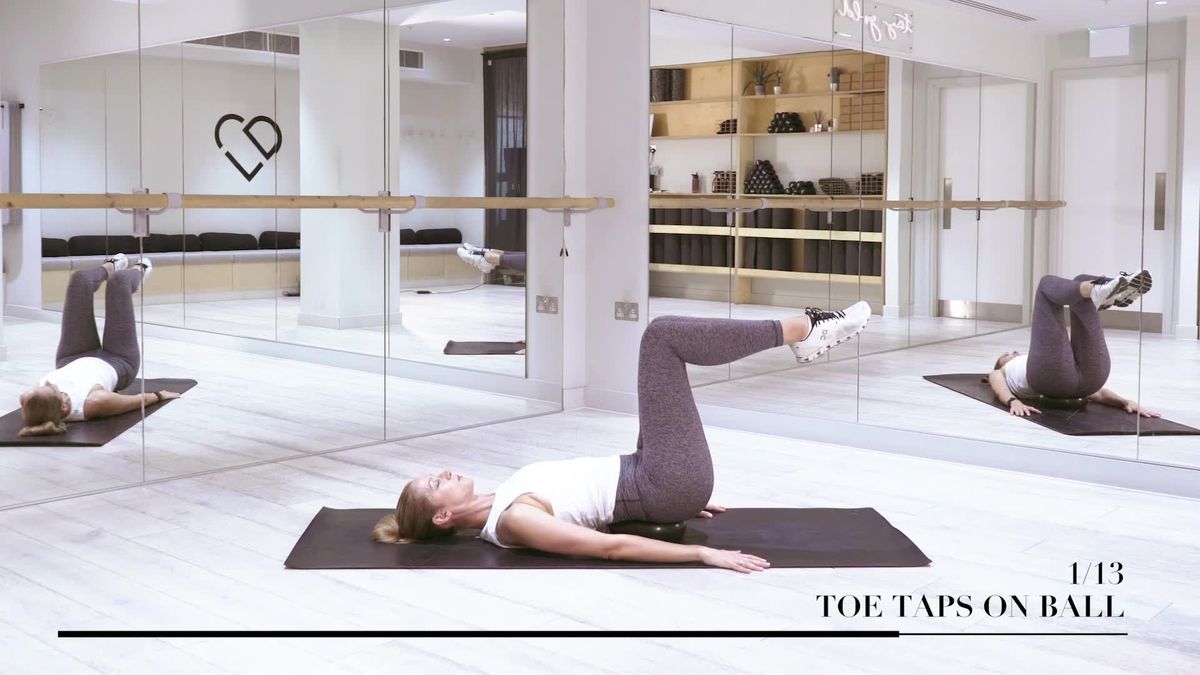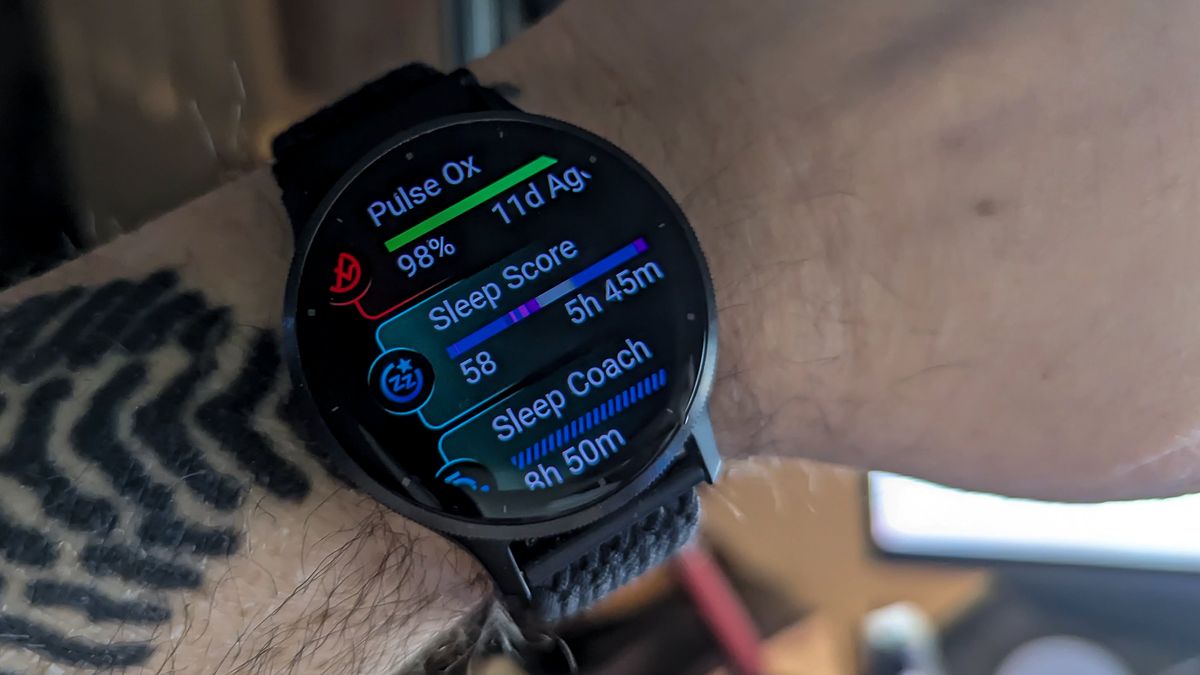Fitness
Can a fitness mirror change one gym-phobic editor’s outlook?

The wellness tech boom shows no signs of slowing, as more and more of us opt to take our self-care plans in-house. We’ve detoxified in at-home infrared saunas, marinated under powerful LED masks, and joined the growing cult of the Oura ring to report on everything from menstrual cycles to sleep efficiency.
But while we’ve jumped willingly into the world of devices that promise to reduce our heart rate, those that offer to do the opposite have historically been more of a hard sell. For many, working out at home can be challenging, whether it’s the lack of floor space to ensure a proper workout, the distractions that come from small children or buzzing phones, or the fact that it’s not always easy to maintain correct form without the guidance of a professional trainer.
Magic AI is the brand that wants to change the way we approach fitness at home. The innovative, first-to-market product is essentially a full-length mirror that uses AI to deliver interactive personal-training sessions, whether you’re after a core-building session, cardio-intensive HIIT, or precise strength-building.
How does the Magic Mirror work?
The brand’s trademarked ReflectAI® technology uses a camera embedded within the mirror to track your movements, allowing it to offer instantaneous feedback on your form – a crucial consideration when you’re working out without a teacher in the room. It’ll tell you when you need to adjust your posture to avoid injury, keep track of your reps (while encouraging you to hit just one more) and pause when you need to realign or take a quick break.
“We use AI to create a hyper personalised experience for our users,”Sunil Jindal, the co-founder and head of product, tells me. “This has started with our revolutionary ReflectAI technology. We have recently introduced hyper-personalised verbal feedback that we provide each user with at the end of their session. This mimics the experience of talking to a PT face-to-face and helps them continuously improve each time they work out with us.” Longer term, Jindal wants to develop the technology to bring the user themselves into the screen, so they can become their own personal trainer and ‘mirror’ themselves, literally.
Like its obvious competitor, Peloton, Magic Mirror is banking on major engagement to keep users coming back, using a cast of revered trainers to keep you truly engaged in your fitness journey: after all, where else can you take a cardio-heavy dance class with Strictly Come Dancing’s Katya Jones, or learn techniques for improving your speed with the Olympian Asha Philip?
Magic AI Mirror: the Bazaar review
At 34, I accepted the fact that I’ll never be a ‘gym person’ a long time ago. My fitness routine lies firmly in the ‘low-cortisol’ realm, consisting of Reformer pilates classes and the occasional at-home yoga session. I’ve tried strength-building classes and even ventured into a dimly lit boxing gym once, but as someone that was always picked last at sports day, found them to be intimidating and exhausting.
At first glance, the Magic Mirror sounds extremely appealing; I’d love the opportunity to build my fitness without having to travel to the gym or commit to a rigid timetable. I am, however, famously tech-phobic, so I plugged in the weighty (yet surprisingly good-looking) mirror into the wall with a little trepidation.
I quickly learned I had nothing to worry about; this slick piece of tech is built for the novice. Within five quick minutes, I’m completely set up and ready to embark on my first workout.
While I’m initially not quite taken by the courses on offer – they feature far more high-energy language than I’m used to, I decide to start slow with a 15-minute beginner’s Pulse HIIT class, led by the trainer Ruby Padwick. Within a minute, I’m jack-knifing and jumping until my heart rate soars, and I’m surprised at how exhausting just 15 minutes of action can be.
Within a few days, I feel compelled to challenge myself – and after my husband (admittedly much more capable than I) tells me that the 30-minute ‘intermediate’ sessions are better than a real-life gym class, I give one a go, opting for the Blast: Upper Body class by the performance coach Kirsty Hendy.
There’s a real step up here in difficulty level, and as I approach the last round of ‘handcuff push-ups’, I consider doing what I’d naturally do in a real-life class: cheat (no discipline, remember?). Of course, the remarkably effective body-movement monitor isn’t having any of it. I’m quickly instructed to correct my form, lift my legs higher, and hit those reps that are being clocked by a counter at the top of the screen. As someone with a propensity for, well, giving up, that glowing number does encourage me to strive for just one more rep each time.
One thing that impressed me is the way the Magic Mirror is clearly innovating and developing at a remarkable pace; just four weeks into my testing, my mirror has been upgraded to feature more accurate rep-count tracking and weight changes, with no extra payment required.
After a week – and I’m genuinely surprised to say this – I’m hooked. It’s been a month of four classes each week, and I’m already seeing results: my arms appear more toned, and I’m less sluggish throughout the day. I’ve learned so much about my capabilities (turns out, I’m not as hopeless as I originally thought) and have gained so much confidence, I feel I could happily stroll back into that boxing gym – although now, I have no need to, of course.
Magic AI Mirror: the pros
- Ease of use: intuitive design with no gym jargon
- There’s no monthly membership or rolling subscription required
- The progress dashboard allows you to keep track of your progress
- It’s easy to share: you can add up to five profiles to the mirror
- Updates are in-built: once you’ve purchased your mirror, there’s no surprise payment to access the latest functionalities or instructors
Magic AI Mirror: the cons
- You may need a significant amount of floor space in order for the trackers to pick up your movements
- There’s currently a lack of low-intensity yoga and pilates classes (although these are in the works, along with boxing)
Magic Mirror is available Selfridges and online at Magic.fit, starting from £1,399.












